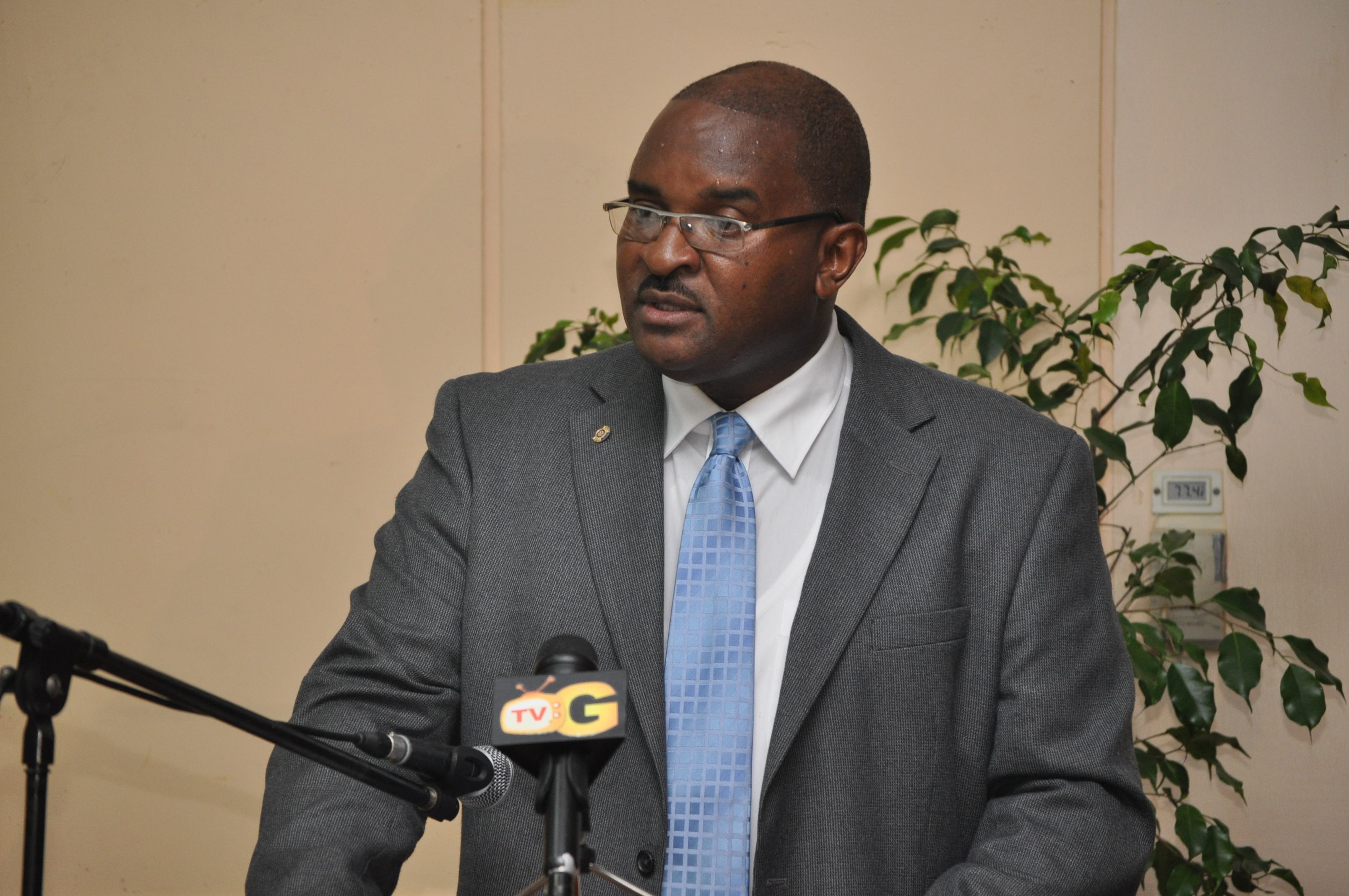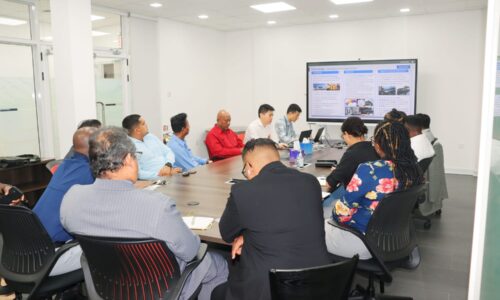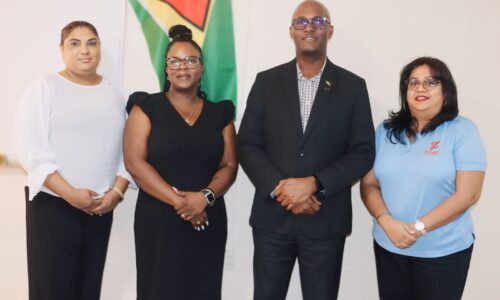(GuyanaTimes) … to protect local investment climate BY TAJERAM MOHABIR

With snap elections in the air, Georgetown Chambers of Commerce and Industry (GCCI) President Lance Hinds is calling on all political parties to conduct their campaigns in a mature manner to protect the local investment climate.
Speaking to Guyana Times in a recent interview, Hinds said investors’ confidence, along with the confidence of the local private sector and the general public, would only increase if all parties work to build a more mature and progressive political environment.
“Almost 50 years after Independence, we still have a highly combative, partisan political process, severely affected by race and class, seemingly unable to put the nation and its people first on a regular basis.”
Even though General and Regional Elections are constitutionally due in 2016, the A Partnership for National Unity led by Brigadier (retired) David Granger has signalled the coalition’s support of a no-confidence motion tabled by the Alliance For Change (AFC) Leader, prominent Attorney Khemraj Ramjattan.
From all indications, the elections campaigning have already begun, and it is likely when Parliament resumes from recess in October, the AFC and APNU would not back down in supporting the motion that will force Donald Ramotar-led Government to call fresh elections within three months.
There is a feeling that though the Opposition politicians are eager to go to the polls, the elections spirit is not with the populace. However, there is some time yet for the politicians on both sides of the political divide to whip up support.

Hinds, who is also Chief Executive Officer of Brain Street, a leading Information Communication Technology (ICT)-based firm on Albert Street, Queenstown, Georgetown, said the chamber, like many other stakeholders, would have preferred if a greater effort would have been made to address issues pertaining to weaknesses in local government administration and constitutional reform.
“Because of the current parliamentary configuration; however, the Opposition has a constitutional option to move for a no-confidence vote and the Government equally has the option to dissolve Parliament and call snap elections. We have no input or control of that process,” he said.
For its part, the Guyana Manufacturing and Services Association (GMSA) said that all General Elections do is instill fear and uncertainty in the minds of Guyana’s population.
GMSA President Clinton Williams had said that “to go to elections is not the best thing for the country” at this time. He described the current situation as a “double whammy”, explaining that “there is no absolute probability that elections will not return a minority Government”.
The GCCI is urging policymakers to engage in constructive dialogue on issues affecting the economy and social development. The business representative body in a release had said: “We do not subscribe to the notion that premature General Elections is the solution to our current political impasse. General Elections are costly, time-consuming exercises which should preferably be conducted at the time when they are constitutionally due.”
Broader picture

If the no-confidence motion is passed, elections will be held one year before it is constitutionally due, and according to Hinds, the onus is on the politicians to see the broader picture.
“If there is going to be any impact on investment, it will be a function of what happens after the election. It is critical that the results, and the process leading up to those results, are accepted by the majority of the electorate as fair and transparent.”
The Private Sector Commission had said elections are an integral part of the process of democracy, but given the state of things, it should not be given priority over dialogue.
“It will be very unfortunate if such a motion is passed as it would signal political instability to our foreign investors, financiers, customers and suppliers.
This will further increase the political risk premium added to the cost of capital when overseas funding is sought by private entities and can negatively impact our economy,” the PSC had said in a statement.
Hinds told Guyana Times that should the motion be passed, the private sector could only urge that good sense prevails.
“The private sector can only try to urge the political parties to conduct their political campaigns in the manner that does not incite social, racial and related tensions. The political parties however, as is normally their wont, will conduct their campaigns as they see fit,” he said.
Emerging culture

The issue of no-confidence motion appears to be part of an emerging Caribbean culture to dislodge Governments, who in the view of their rivals, lack the wherewithal to govern effectively.
Grenada’s Prime Minister Tillman Thomas in 2012 survived a no-confidence motion brought by Opposition Leader, Dr Keith Mitchell who accused him of running a dysfunctional Government.
Thomas later succumbed at the polls to Dr Mitchell in 2013. Trinidad and Tobago Prime Minister Kamla Persad-Bissessar survived a no-confidence motion brought by Opposition Leader, Dr Keith Rowley in 2012, who accused the Prime Minister of gross incompetence, among others.
In 2010, the Jamaican Government headed by Prime Minister Bruce Golding had also survived a no-confidence motion brought by then Opposition Leader Portia Simpson-Miller.
Golding’s party subsequently lost to Simpson-Miller at the polls in 2012. In all these cases, the Government had a majority in Parliament, but the ruling People’s Progressive Party/Civic (PPP/C) does not enjoy this status, as the Opposition holds a slim one-seat majority.
In another matter, St Kitts and Nevis Opposition Leader Mark Brantley said he has given up hope that the motion of noconfidence in the Government he filed 15 months ago will be tabled.
According to Brantley, Prime Minister, Dr Denzel Douglas has no interest in having the motion brought before Parliament.
In a court ruling last month, on February 12, Justice Darshan Ramdhani said there are no impediments preventing the motion being brought to the House, Caribbean News Now reported.

Brantley is of the view that the General Election has been delayed because constitutional boundary changes approved by Parliament have not yet taken effect.
The AFC last month tabled the motion, contending that it has no confidence in the Government, claiming unauthorised spending by Finance Minister, Dr Ashni Singh, among other matters.
The Government has since dismissed the contentions raised by the Opposition parties (AFC and APNU) as groundless, while hinting that snap elections could be called before the no-confidence motion is debated.
Former Government Minister under the People’s National Congress (PNC), Dr Faith Harding has described the motion as a mistake, contending that it will not solve the problems facing the country.
She called on the Government and the Opposition to sit at the negotiation table, and give “Guyana a break!”








